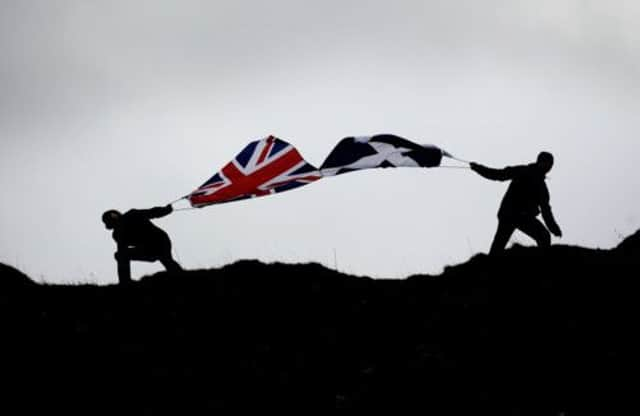Leaders: ‘No’ camp must work harder | Calm heads needed


If they are being honest with themselves, it will only confirm some of their worst fears. Far from hurtling to a famous victory in September 2014, the Yes campaign is struggling. Poll comparisons on this subject are sometimes misleading, given the different ways each polling company puts together and weights its sample. But the most dependable comparison – with a survey 11 months ago by the same polling company –- shows support for Yes at exactly the same level. All that has changed is that support for a No vote has now hardened, to the extent that it now outnumbers support for independence by a factor of two to one. To have made zero progress in almost a year, and to have allowed your opponent to pull away from you, bodes ill for the cause. If alarm bells are not already clanging in the Yes campaign’s Hope Street headquarters in Glasgow, they should be now. Polling day may yet be a year away, but hope is almost all that independence believers have left.
There is more bad news for the SNP and its allies in the poll’s other findings, which concentrate – unsurprisingly, since the survey was privately funded by the Devo Plus pressure group – on what Scots think about the middle way in Scottish constitutional politics: a stronger Scottish Parliament with more significant financial powers, but still within the UK. Faced with a binary referendum that only asks a yes or no on independence, this might at first seem a curious line of questioning. If it isn’t on the ballot, why bother? But in fact, as the details of this survey show, the case for more powers could yet have a significant effect on the independence referendum if it becomes the de facto No position by the time we get to the vote. The numbers clearly show a section of the Yes support can be persuaded to switch sides if a powerhouse Holyrood parliament, secure within the UK, is on the table.
Advertisement
Hide AdAdvertisement
Hide AdThe Better Campaign therefore has the opportunity to extend and bolster its lead if – and it is a big if – it can coalesce around a convincing offering on more powers. And there’s the rub. Because the anti-independence parties’ progress towards this goal has so far been slow and meandering. In fact, some influential figures in the pro-UK camp would rather they did not arrive at this destination at all. This is a dangerous train of thought. Voters do not like politicians who do not make good on their promises. In fact, they hate that with a passion. Alistair Darling, head of Better Together campaign, has made repeated promises on more powers for Holyrood. So have all the individual Labour, Lib Dem and Tory leaders in Scotland. If, a year from now, it looks like this was all just talk, the voters’ verdict on Better Together will be brutal, and deservedly so. As Scottish Labour discovered at the 2011 Holyrood elections, early leads in Scottish campaigns can very easily disappear if politicians earn the Scottish voters’ displeasure.
The No campaign is in a very strong position at the moment. But both sides in this contest have yet to play their main card – the nationalists with their white paper due in November and the unionists with their offering on more powers. The credibility of each of these offerings will be crucial. Either one could prove to be decisive. It is hard to escape the conclusion that more work is going into the Yes camp’s offering than the No camp’s.
Calm heads needed
IT is now almost two-and-a-half years since protests sparked by the Arab Spring in countries such as Egypt and Tunisia erupted in Syria and prompted the brutal crackdown by president Bashar al-Assad that is now threatening renewed warfare involving western powers in the Middle East. The danger now for global security is of the Syrian conflict growing into the most tense face-off between Russia – which views the Syrian regime as its principal ally in the region – and the United States since the end of the Cold War. Playing divisions among western nations cleverly, the Russian president Vladimir Putin appears to be using the reluctance of the UK parliament to support American military action to advance his country’s interests in the region; if the US’s principal historical ally won’t join a strike against Syria in response to alleged chemical weapons attacks against its own people, then why should Russia endorse punitive action against its friends? Irrespective of what happens in Syria over the next few days, the two leaders are due to meet this week at the G20 summit being hosted by Putin, who made reference yesterday to Obama’s status as a Nobel peace prize laureate, in St Petersburg. Calm heads are now needed as the G20 will now become the crucial forum for ensuring that the Syrian problem does not become a proxy for global rivalries that could escalate out of control.